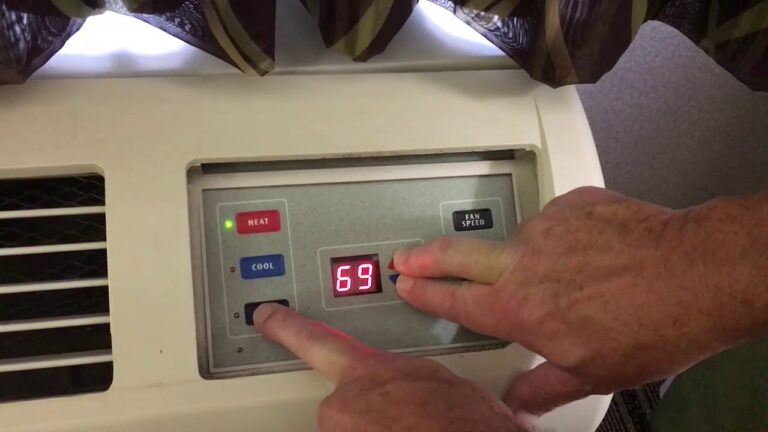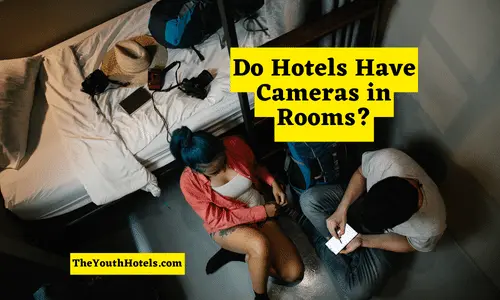Can a Hotel Give Out Guest Information to The Police?

A hotel can give out guest information to the police based on legal requirements and warrants. Hotels can be obligated to provide guest information to law enforcement agencies if they present a valid warrant or subpoena.
This is done to comply with legal obligations and to assist in the investigation of criminal activities. While hotels prioritize guest privacy, they must also cooperate with authorities to maintain the safety and security of their premises.
By law, hotels cannot disclose guest information without proper legal documentation, ensuring that guests’ personal details remain protected.

Navigate Where You Want:
- The Balance Between Guest Privacy And Law Enforcement
- Can A Hotel Provide Guest Information To The Police?
- Guest Privacy Policies And Consent
- Warrant Requirements For Guest Information
- Case Studies: Hotels And Law Enforcement
- Ethical Considerations And Best Practices
- Frequently Asked Questions
- Can A Hotel Disclose Guest Information?
- What Are The Rights Of The Guests in The Hotel?
- Do Hotels Keep Records Of Guests?
- How Can I Find Out If My Husband Stayed At A Hotel?
- Conclusion
The Balance Between Guest Privacy And Law Enforcement
Hotels often find themselves caught between maintaining guest privacy and fulfilling legal obligations to law enforcement. Privacy rights in the hotel industry are essential, but so is cooperating with authorities when necessary.
Hotels must strike a delicate balance between safeguarding guest information and providing the necessary support to law enforcement.
While guests have a reasonable expectation of privacy during their stay, hotels are legally obliged to assist law enforcement if there are valid concerns, such as threats to public safety or criminal activities.
This assistance may include providing guest information, such as identification documents or contact details, upon request.
However, it is crucial for hotels to handle guest information responsibly and only disclose it when legally required.
Overall, hotels must carefully navigate the fine line between guest privacy rights and their legal obligations to maintain a safe environment for all.
Can A Hotel Provide Guest Information To The Police?

Hotels can share guest information with the police in specific circumstances. The cooperation involves ensuring public safety and protecting guest privacy. When law enforcement agencies request information in relation to a criminal investigation, hotels may be legally obligated to comply.
This cooperation is crucial for maintaining security within the premises and the surrounding community.
However, hotels must also strike a balance between the necessity to assist law enforcement and the rights of their guests to privacy. They should only disclose pertinent information to the police and adhere to applicable laws and regulations.
By establishing guidelines and protocols for sharing guest information, hotels can mitigate potential privacy concerns while still assisting law enforcement when necessary.
Guest Privacy Policies And Consent
Guest privacy is a crucial aspect for hotels, and clear privacy policies play a significant role. The hotel needs to obtain the guest’s consent before sharing any of their information with the police or any other external party.
This ensures that the guest’s personal details are handled appropriately and their privacy is protected.
It is important for hotels to have explicit policies in place, clearly outlining when and how guest information may be shared. By obtaining consent, hotels can maintain transparency and uphold the trust that guests place in them.
Guest privacy policies not only safeguard the individual’s personal information but also contribute to creating a positive and secure environment for guests during their stay.
Warrant Requirements For Guest Information
Hotels are required to follow strict regulations before giving out guest information to the police. The most important requirement is the need for a warrant. Unless a judge issues a warrant, hotels are not permitted to disclose any guest information.
However, there are certain exceptions to this warrant requirement. In cases of emergency or when there is an imminent threat to public safety, hotels may provide guest information to the police without a warrant.
Additionally, if a hotel guest provides consent, their information can be shared with law enforcement.
It is crucial for hotels to understand and adhere to these warrant requirements to protect the privacy of their guests. By doing so, they maintain their reputation as a trustworthy establishment that respects guest confidentiality.
Case Studies: Hotels And Law Enforcement
Hotels and their obligation to share guest information with law enforcement agencies have been subjects of numerous notable lawsuits.
These cases, which shed light on the impacts on guest privacy and hotel reputation, have sparked debates on where the line should be drawn.
Although hotels are expected to cooperate with the police in criminal investigations, the extent to which they can disclose guest information remains a grey area.
Several instances have demonstrated the potential harm caused by the release of such personal data, resulting in breaches of trust, lawsuits, and reputational damage for hotels.
However, it is vital to strike a balance between guest privacy and the need for law enforcement to ensure public safety.
Finding this equilibrium is crucial to safeguarding the rights of guests while supporting effective law enforcement practices. The complexities surrounding this issue require careful consideration to protect both hotel guests and the society they engage with.
Ethical Considerations And Best Practices
When it comes to ethical considerations and best practices, hotels must recognize and respect guest privacy rights. This includes the question of whether a hotel can provide guest information to the police.
Implementing effective data protection measures is crucial in ensuring the privacy and safety of guests.
It is important for hotels to understand the legal implications surrounding guest information and to provide information to the authorities only in accordance with applicable laws.
Hotels must prioritize guest privacy and employ secure systems and protocols to protect guest data.
By doing so, hotels can maintain the trust and confidence of their guests, while also upholding their ethical obligations.
Respecting guest privacy rights is not only the right thing to do, but it also helps build a positive reputation for the hotel, attracting more guests in the future.
Frequently Asked Questions
Can A Hotel Disclose Guest Information?
Hotels may disclose guest information under certain circumstances, such as complying with legal obligations or ensuring guest safety. However, they should prioritize guest privacy and protect personal information.
What Are The Rights Of The Guests in The Hotel?
As a guest in a hotel, you have certain rights. These include:
- Safety: The hotel must provide a safe environment and ensure the security of guests and their belongings.
- Privacy: You have the right to privacy in your hotel room, and hotel staff should not enter without permission, except in cases of emergency.
- Cleanliness: The hotel must maintain clean and hygienic premises, including guest rooms, common areas, and amenities.
- Services: Guests have the right to access the services and facilities offered by the hotel, such as Wi-Fi, parking, and breakfast.
- Accommodations: The hotel must provide the accommodations promised at the time of booking, including the type of room and any requested amenities.
- Fair Treatment: Hotel staff should treat guests with respect and courtesy, and should promptly address any concerns or complaints.
Remember to familiarize yourself with the hotel’s policies and communicate any specific needs or preferences during the booking process or upon check-in.
Do Hotels Keep Records Of Guests?
Hotels do keep records of their guests for safety and legal purposes.
How Can I Find Out If My Husband Stayed At A Hotel?
To find out if your husband stayed at a hotel, you can start by checking his credit card statements for any hotel charges. You can also look for hotel confirmation emails in his email account or any hotel receipts in his belongings.
Additionally, you can try accessing his phone or tablet to see if there are any hotel apps or recent search history related to hotels. Don’t forget to check social media platforms, as your husband may have posted about his stay or tagged his location.
Lastly, if you suspect infidelity and have legal reasons to do so, it may be possible to hire a private investigator to gather evidence. Remember to respect privacy and trust, and open communication is crucial in any relationship.
Conclusion
To summarize, hotels have the legal authority to release guest information to the police if there is a valid reason to do so. However, they must carefully balance guest privacy rights with the need to maintain public safety and comply with applicable laws.
Hotel policies regarding guest information should be transparent and clearly communicated to guests, ensuring they are aware of the circumstances in which their information could be shared.
It is also important for hotels to have a clear understanding of local laws and regulations in the jurisdiction where they operate.
By working closely with law enforcement agencies and following proper procedures, hotels can help contribute to public safety while still respecting guest privacy.
Ultimately, striking the right balance between these two considerations is essential for maintaining trust and ensuring the safety and security of both guests and the wider community.
Also Read:






